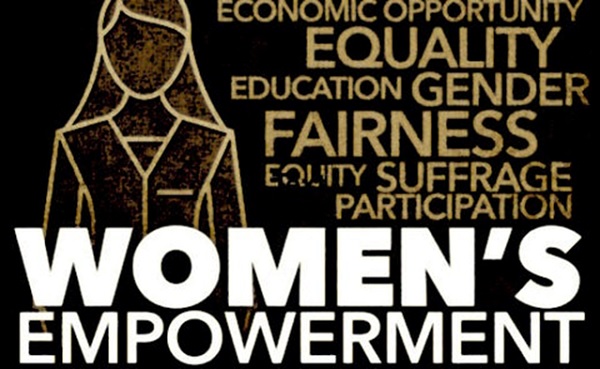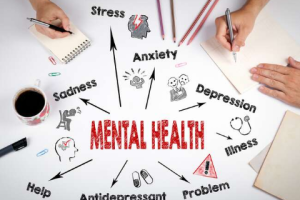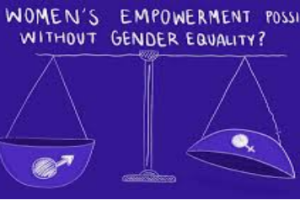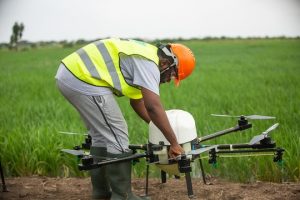
As the saying goes, “educating a girl child is educating the society,” the Ethiopian government has now attached due emphasis to educating women and girls. In developing countries like ours, girls have long been overlooked and are still marginalized due to a dependency culture, a lack of education, limited work prospects, sociocultural impediments, and poverty, though there have been some improvements in recent days.
Taking into account the wider gaps witnessed in the rural parts of the country regarding women and girls, this writer approached Almaz Asmamaw, who graduated in Gender Studies from Addis Ababa University and is working as a reproductive health consultant, to seek professional information concerning the issue under discussion.
She said, “Girls have to have a safe place to live, receive an education, receive training and skills to support themselves, and build a prosperous life. Of course, they may be orphaned, abandoned, made to work, or forced into marriage. They are not always given an opportunity to receive an education and can be taken advantage of and abused. These girls often end up on the streets with no one to care for them and nowhere to go.”
According to her, the empowerment running in the nation has entailed the process of challenging power relations and gaining wider control over sources of power and economic self-sufficiency. However, this cannot be achieved without providing reasonable access to formal and functional education for women and young girls. This is based on the premise that education has been adjudged to be a viable instrument of positive change.
Almaz stated that, it is through education that an individual’s life can be positively affected, as education brings about changes in an individual’s behavior. Most importantly, women’s education, as a sine qua non for the social, economic, and political advancement of any nation, advocates for empowering women through education to contribute to their well-being and that of their family, community, and the nation at large.
Therefore, there is a need to educate women properly, as this will enhance their ability to transmit social values and norms to their young ones, as they raise and care for them. This means that not only do women’s education help improve the lives of individual families, but it also positively contributes to national development.
“True, education is critical in the development of modern societies. Women’s education plays a pivotal role in fostering national development, as the female is the bearer and caretaker of children. She is their first teacher and is in contact with them right from birth to maturity. That is the very reason why educating a woman will have a direct bearing on the lives of their children, the family, as well as the society at large,” she added.
An enlightened girl eventually becomes a knowledgeable mother who has several advantages since she stands to be more productive in her home. She raises a healthy family and is capable of guiding her children positively on all concerns, Almaz opined.
Women’s education enhances national development in that it helps them secure highly paid jobs just like their male counterparts who are highly educated. If women get highly paid jobs, they will help alleviate poverty both in their families and in Ethiopian society in general.
True, women’s education enhances their access to and control over income and productive resources through improvements in poverty-alleviating and employment-generating programs. This means that women’s education helps improve the economic condition of families, rural and urban communities, and society in general. Undoubtedly, allowing women access to education serves as an indicator of social progress, and investing in the education of females can be regarded as the single most cost-effective investment to improve standards of living in developing countries like ours.
This demonstrates that, women’s education further enhances the development of the citizenry since it improves the standard of living of the population, said Almaz, adding that women are the majority of agricultural producers, playing important roles in fisheries, forestry, and farming in many developing countries like Ethiopia.
Indeed, food security depends on the availability, accessibility, adequacy, and acceptability of food. Women’s empowerment through education is a way by which disadvantaged people are enabled to gain independence and capacity to overcome structured inequalities and inequalities that have kept them away from needed resources, land, credit, technology, power, decision-making, and information.
“This means that if a woman is cultured, gentle, and respectful, she will be better prepared to train her children to behave well and be cultured as well. Moreover, she will occupy a responsible position in her place of work. This will lead to national development,” Almaz elaborated.
In truth, said Almaz, the overall development of the country may not be realized if the education of women is not given the priority it deserves. She further stated that, women’s education has to be taken as something very important in Ethiopia for academic development and leadership opportunities. If women are developed mentally and intellectually, they can impart the right values to their sons and husbands, who can help make the world a better place. Therefore, it is necessary to educate women for the great development of countries. Despite the positive implications of women’s education on national development, some obstacles to women’s education need to be identified for immediate correction.
According to Almaz, a woman being gentle, polite, and respectful provides her with the character to be cultured and gain a better position to train her children to behave well and be responsible, competent, and productive. This will lead to national development, as the overall development of the country may not be realized if the education of women is not given the priority it deserves.
Surprisingly, some people, especially in rural areas, still believe that female education ends in the kitchen and therefore do not encourage their female children to have access to education. The negative effect of this situation is that if women are not encouraged to have access to education, the education of their children will be hindered, said Almaz.
Furthermore, she added, a woman with little or no education and a low-paying job will not contribute much to the education of her children, let alone play vital roles in national development. What a setback to national development it is! Successful married educated women should be invited to give talks to parents to demonstrate that female education helps them take care of their families better since they have better jobs; hence, their earnings extend to their families.
“Parents should provide equal educational opportunities to all their children, whether male or female. This will contribute to national development since every child is given the opportunity to fulfill their roles regardless of gender. All levels of government, non-governmental organizations, religious organizations, traditional rulers, school administrators, teachers, parents, charity organizations, women’s associations, and other segments of society should work together towards the education of women and the equalization of educational opportunities for all, regardless of gender,” she emphasized.
Undeniably, a girl child can become a wife, mother, worker, or leader, depending on how she can maximize her potential. Globally, the issue of girl child education has caught the attention of many stakeholders due to the inequality and marginalization faced by girls in terms of access to education. This problem is particularly prevalent in underdeveloped and developing nations, especially in Africa and other developing parts of the world. Child marriage, child labor, poor policy implementation regarding girl child education, and poverty, among others, has been identified as barriers to girl child education.
In summary, women’s empowerment, effective policy implementation, and scholarships for girl child education should be put in place to help Ethiopia benefit maximally from comprehensive education. It is well-established that countries with a good number of educated and literate women experience fewer maternal and infant mortalities, increased GDP and economic growth, peaceful coexistence, and decreased domestic violence, among other positive outcomes. Therefore, the government and other concerned bodies should actively work to bridge the gaps of inequality for women in order to help the nation make a real difference in all aspects. There is no doubt that ensuring inclusive and equitable quality education and promoting lifelong learning opportunities for all is of significant importance in bringing about a rewarding change. This is why gender policies advocate for gender equality, aiming to provide equal opportunities to women and eliminate gender bias.
BY MENGESHA AMARE
THE ETHIOPIAN HERALD TUESDAY 28 NOVEMBER 2023





